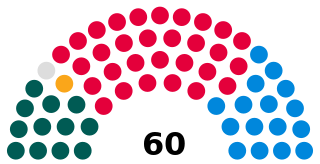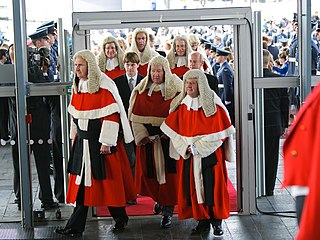Part 2 – Specific Reservations
Head A – Financial and Economic Matters
Section A1 – Fiscal, economic and monetary policy
Section A2 – The currency
Section A3 – Financial services
Section A4 – Financial markets
Section A5 – Dormant accounts
Head B – Home Affairs
Section B1 – Elections
Section B2 – Nationality and immigration
Section B3 – National security and official secrets
Section B4 – Interception of communications, communications data and surveillance
Section B5 – Crime, public order and policing
Section B6 – Anti-social behaviour
Section B7 – Modern slavery
Section B8 – Prostitution
Section B9 – Emergency powers
Section B10 – Extradition
Section B11 – Rehabilitation of offenders
Section B12 – Criminal records
Section B13 – Dangerous items
Section B14 – Misuse of and dealing in drugs or psychoactive substances
Section B15 – Private security
Section B16 – Entertainment and late night refreshment
Section B17 – Alcohol
Section B18 – Betting, gaming and lotteries
Section B19 – Hunting
Section B20 – Scientific and educational procedures on live animals
Section B21 – Lieutenancies
Section B22 – Charities and fund-raising
Head C – Trade and Industry
Section C1 – Business associations and business names
Section C2 – Insolvency and winding up
Section C3 – Competition
Section C4 – Intellectual property
Section C5 – Import and export control
Section C6 – Consumer protection
Section C7 – Product standards, safety and liability
Section C8 – Weights and measures
Section C9 – Telecommunications and wireless telegraphy
Section C10 – Post
Section C11 – Research Councils
Section C12 – Industrial development
Section C13 – Protection of trading and economic interests
Section C14 – Assistance in connection with exports of goods and services
Section C15 – Water and sewerage
Section C16 – Pubs Code Adjudicator and the Pubs Code
Section C17 – Sunday trading
Head D – Energy
Section D1 – Electricity
Section D2 – Oil and gas
Section D3 – Coal
Section D4 – Nuclear energy
Section D5 – Heat and cooling
Section D6 – Energy conservation
Head E – Transport
Section E1 – Road transport
Section E2 – Rail transport
Section E3 – Marine and waterway transport etc.
Section E4 – Air transport
Section E5 – Transport security
Section E6 – Other matters
Head F – Social Security, Child Support, pensions and Compensation
Section F1 – Social security schemes
Section F2 – Child Support
Section F3 – Occupational and Personal Pensions
Section F4 – Public sector compensation
Section F5 – Armed forces compensation etc.
Head G – Professions
Section G1 – Architects, auditors, health professionals and veterinary surgeons
Head H – Employment
Section H1 – Employment and industrial relations
Section H2 – Industrial training boards
Section H3 – Job search and support
Head J – Health, Safety and Medicines
Section J1 – Abortion
Section J2 – Xenotransplantation
Section J3 – Embryology, surrogacy and genetics
Section J4 – Medicines, medical supplies, biological substances etc.
Section J5 – Welfare foods
Section J6 – Health and safety
Section K1 – Media
Section K2 – Public lending right
Section K3 – Government Indemnity Scheme
Section K4 – Property accepted in satisfaction of tax
Section K5 – Sports grounds
Head L – Justice
Section L1 – The legal profession, legal services and claims management services
Section L2 – Legal aid
Section L3 – Coroners
Section L4 – Arbitration
Section L5 – Mental capacity
Section L6 – Personal data
Section L7 – Information rights
Section L8 – Public sector information
Section L9 – Public records
Section L10 – Compensation for persons affected by crime and miscarriages of justice
Section L11 – Prisons and offender management
Section L12 – Family relationships and children
Section L13 – Gender recognition
Section L14 – Registration of births, deaths and places of worship
Head M – Land and Agricultural Assets
Section M1 – Registration of land
Section M2 – Registration of agricultural charges and debentures
Section M3 – Development and buildings
Head N – Miscellaneous
Section N1 – Equal opportunities
Section N2 – Control of weapons
Section N3 – Ordnance Survey
Section N4 – Time
Section N5 – Outer space
Section N6 – Antarctica
Section N7 – Deep sea bed mining












